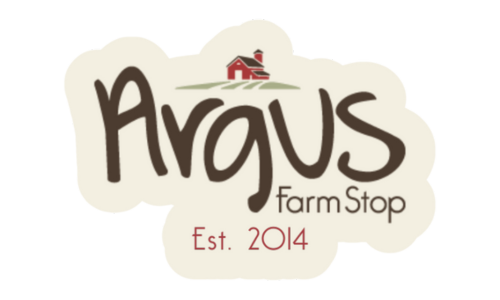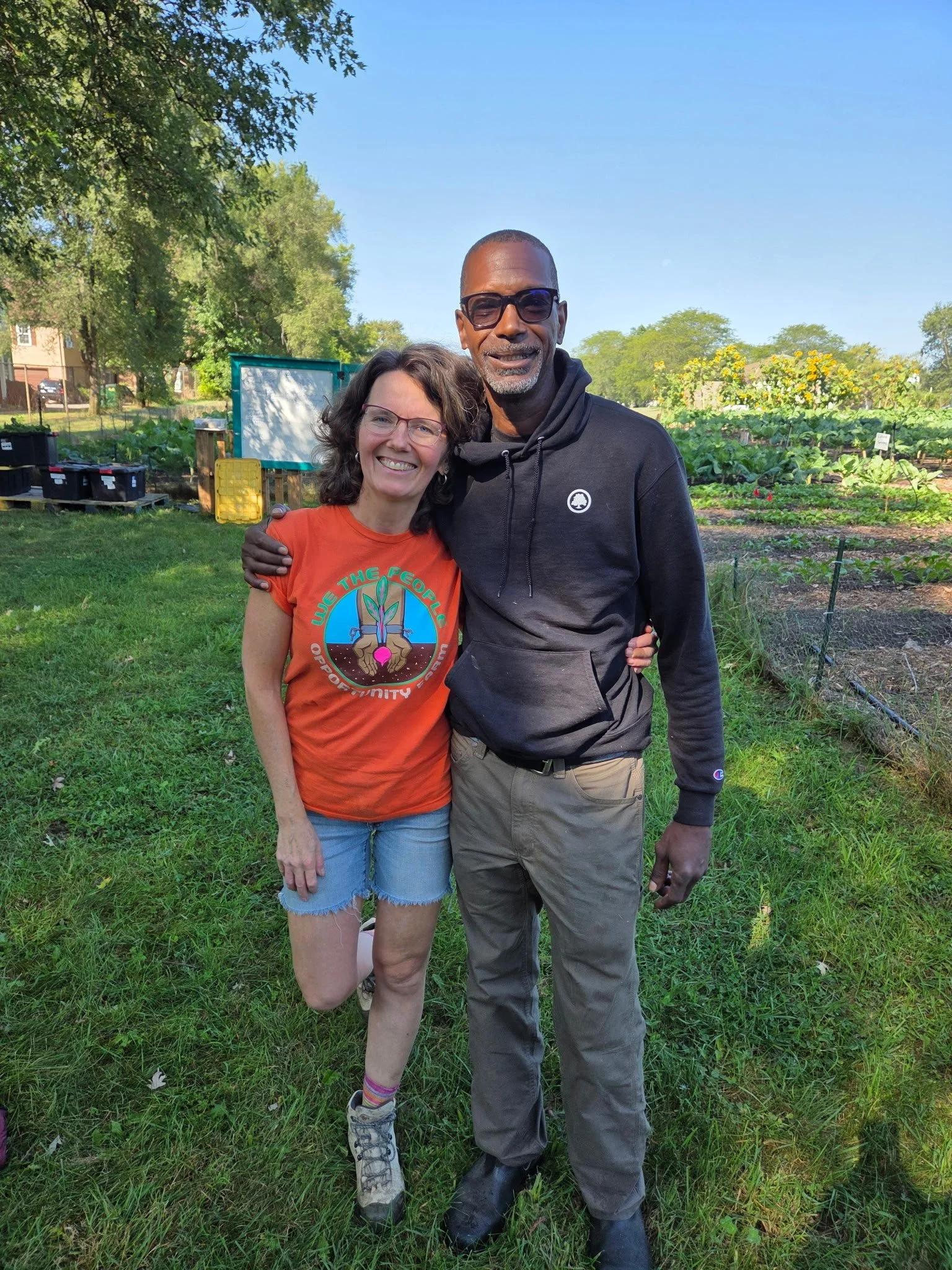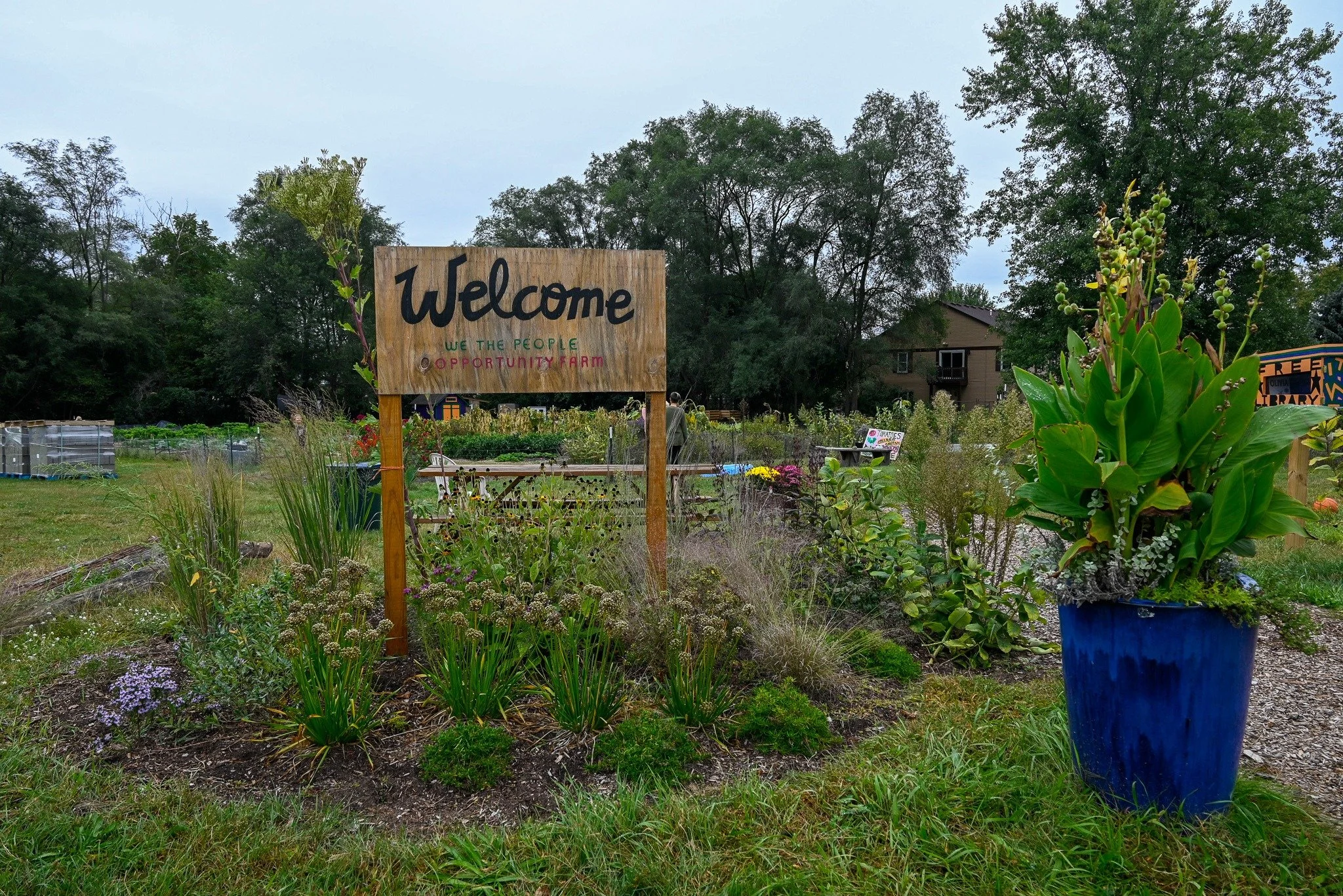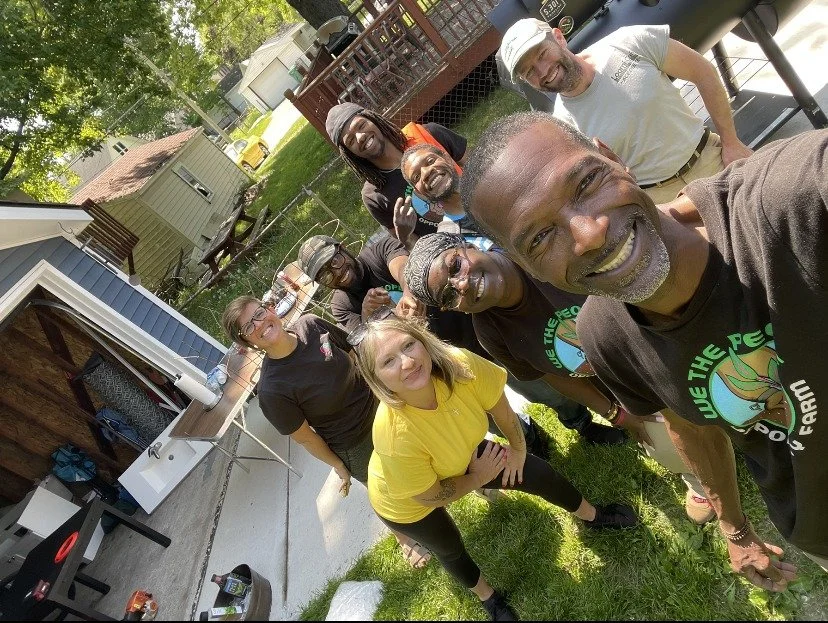Growing People By Growing Food: We The People Opportunity Farm
Argus Farm Stop’s own Tess Rian and WTPOF Founder & Executive Director Melvin Parson
September is a special month for Argus Farm Stop. Each September, we host our annual Food Access Round-Up Fundraiser, supporting our Food Access initiatives. Rounding up helps us expand local food’s reach to our entire community by offering 50% off fresh produce to those paying with an EBT Card with no daily limits, donating $300 worth of produce boxes each week to Jewish Family Services, and supporting the staffing to maintain our 75% discount on our Weekly Produce Box to those using an EBT card. We aim to raise $12,000 to support these initiatives. With our attention turned to food access, September is a great time to highlight a champion of farming and food accessibility, Melvin Parson of We The People Opportunity Farm.
Melvin has been operating We The People Opportunity Farm as a non-profit organization since 2018, but his introduction to growing vegetables came before, when he “inherited a raised bed that I didn’t ask for.” His mentor helped him learn to grow vegetables. He’d frequently send Melvin pictures of farmers, which encouraged Melvin to start his own farm due to the lack of diversity he saw in the photos. He began devoting most of his attention to growing vegetables, and discussed how this impacted him.
“Once I started growing food, I noticed how having my hands in the soil really helped ground me and slow down the noise inside of my head, so I kept forging forward, not having any idea of where this was going to take me. It’s just organically bloomed since.”
The primary goal of We The People Opportunity Farm is to help formerly incarcerated people reintegrate into society by hiring and mentoring them on the farm. Melvin wants to create that same grounding experience of growing vegetables for those who most need it, while reducing recidivism.
“This is our year 5 cohort. I spent 13 years of my life incarcerated, so I wanted to create something for folks who had recently come home, or had been home for awhile, but needed a reset.”
Interning at We The People Opportunity Farm is more than a work opportunity. Interns are paid $21 an hour for sixteen to twenty hours a week, but they also access what Melvin calls “soil-amending components of life.”
“We have financial literacy and compassionate communication workshops, social and emotional learning curriculum, and, of course, wellness therapy. We’ve got music therapy this year. They’re also connected to Michigan Works for job skills and training.”
We The People Opportunity Farm’s job is to help the interns reach whatever their goals are by the end of their internship, whether that be full-time employment, going back to school, or something else. They prioritize building trust in a way that allows them to “help change the soil in their lives.” This multi-faceted approach to helping people find meaningful work post-incarceration provides the dignity, care, and respect that our justice system fails to provide individuals upon their release from prison.
In addition to creating abundant work opportunities, We The People Opportunity Farm also contributes a lot in terms of food access. When COVID hit in 2020, Melvin started thinking of ways the farm could be the best community partners possible. This began their “no cost program.” On the first and second Saturdays of every month, the farm harvests their produce and distributes it to those in need at a community center located right by their farm. People from surrounding communities line up in their cars on these Saturdays to receive the free produce. The program is open to anyone, regardless of where they are coming from and whether or not they have visited before.
“We’ve met some wonderful people who look forward to our food on the first and second Saturdays of every month during the farming seasons. We’ve created some really great relationships. We’d like to think that the smidgen of what we do has some sort of impact on our surrounding community.”
Among the beautiful produce We The People Opportunity Farm provides folks are their four staples: kale, jalapeño peppers, heirloom tomatoes, and collard greens. These staples are beloved by customers of We The People Opportunity Farm for good reason. They are consistently fresh and delicious, and obviously harvested and delivered with care. We at Argus Farm Stop often think of the big, beautiful Collards when we think of We The People Opportunity Farm.
“[Collards are an] easy fit in our farm model. We get a new cohort of interns every year, and most of the folks are not familiar with farming. So, growing collard greens and harvesting them is a simple task or step. [Our] farming plan was done with the help of a wonderful person—her name is Jane Gearhart. She came outside the farm and helped me design what we still hold true to be our foundational crop plan.”
We The People Opportunity Farm currently operates as a non-profit. They do not rely heavily on federal funding, and instead receive most of their funds from individual donors and organizations. Melvin took a moment to thank and acknowledge these donors.
“We are fortunate because we haven’t built an organization that relies heavily on federal dollars, which is great, especially in these uncertain times of federal funding. We’ve got a lot of amazing support by individual donors. Whether it’s $5 or $20,000, each of every one of those dollars are just as important. Our $5 funder is equally as important as our $20,000 funder.
“We’ve been able to build relationships with local foundations, such as the United Way for Southeastern Michigan and the Ann Arbor Community Foundation, along with the Flagstar Foundation, the DTE Foundation, the Jacob’s Foundation, and a few other folks. We are really fortunate that people recognize the work that we’ve done and are intentional about helping us continue to do our soil-changing work.”
You can find We The People Opportunity Farm’s delectable produce at a variety of shops and restaurants, including both Argus Farm Stop locations, Zingerman’s Roadhouse, Zingerman’s Deli, Frita Batidos, Detroit Filling Station, Bellflower, Maiz Mexican Cantina, and the Henry Ford Academy.
We The People Opportunity Farm is also launching the next iteration of its mission soon in the form of a cafe in Ypsilanti. “Good Soil Cafe,” will be located in an “iconic building that has a big cow that’s been sitting on the roof since 1967.” Melvin will be sourcing all of the baked goods locally, and it will be run by formerly incarcerated people.
“We won’t be hiring formerly incarcerated men and women to sell coffee and baked goods, we will be selling baked goods and coffee to hire formerly incarcerated men and women.”
As we settle into the coziness of the approaching fall season, Melvin and his team at We The People Opportunity Farm invite you to visit them or try their produce at any of the above-mentioned locations. Their annual Harvest Festival will be hosted on their farm, located in Ypsilanti, on September 27, 2025 from 12:00-3:00 PM.
“[The Harvest Festival enables us] to tap into the impact by hearing stories from other people. I’m always astonished by them. We really are intentional about building community and being part of an ecosystem that not simply survives, but thrives. This is our 8th annual festival, and it is our way of saying thank you to the community. ”
Thank you to Melvin and every individual at We The People Opportunity Farm for being such wonderful staples of community. Among the many things We The People Opportunity Farm prioritizes, including creating work opportunities for those who need it, diversifying the industry, and regularly donating produce, Melvin and his team are truly changing farming for the better.





